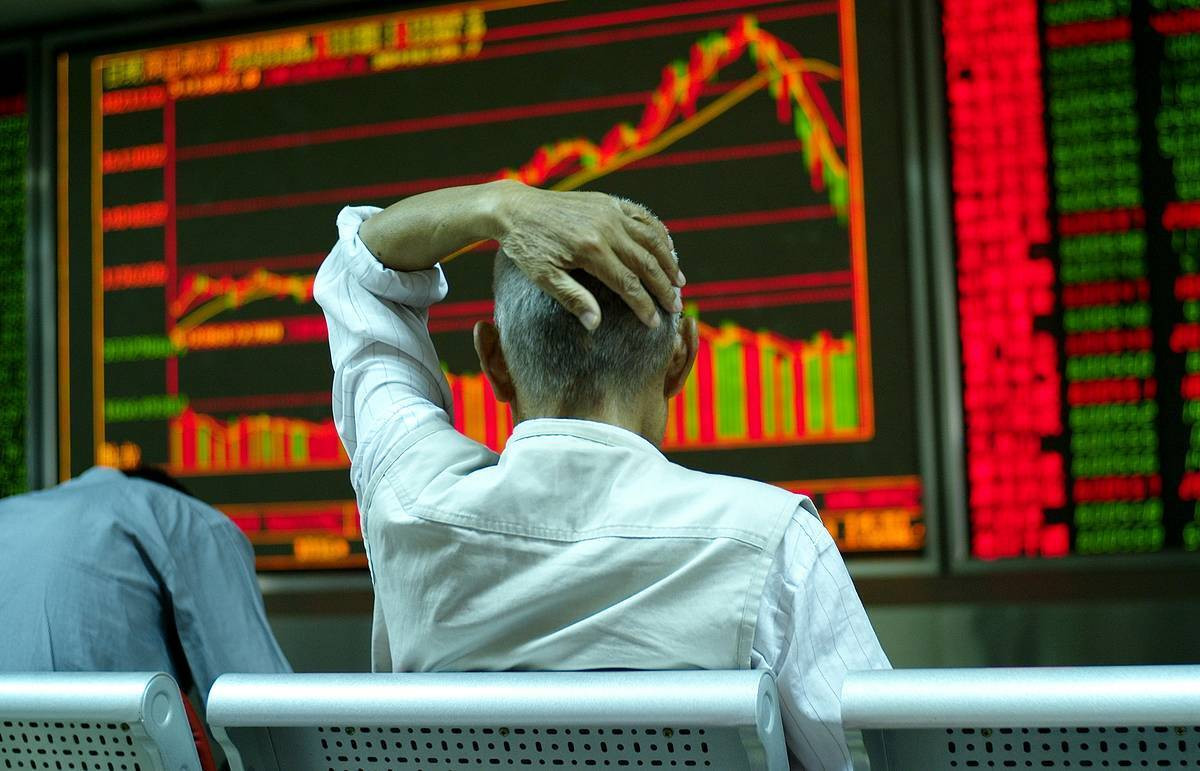On Wednesday, European key stock indices are trading in the red zone.

At the time of writing, the STOXX Europe 600 index of Europe's leading companies lost 0.2% and fell to 430.47 points. On Monday, shares of Finnish energy concern Fortum Oyj, Swedish cloud platform provider Sinch AB, and food delivery service HelloFresh SE topped the list of losers among the STOXX Europe 600. They sank by 5.1%, 4.4%, and 4.3% respectively.
Meanwhile, the French CAC 40 was down 0.01%, the German DAX fell by 0.33% and the British FTSE 100 lost 0.33%.
Top gainers and losers
Shares of British chain of car dealerships Lookers PLC increased by 2.7%. Earlier, the company's management reported strong results for the first half of 2022 despite the continued weakness of the car market in the UK.
Norwegian telecom Telenor ASA stocks lost 0.5%.
Market capitalization of British low-cost airline easyJet PLC fell by 1.8%
Shares of British engineering company Clean Power Hydrogen PLC sank by 2.1%.
Stocks of Israeli developer of laboratory diagnostic equipment BATM Advanced Communications Ltd. were down 4.4%.
Market sentiment
The annual economic symposium in Jackson Hole, Wyoming will become a key event for European investors this week. It is organized by the Federal Reserve Bank of Kansas City. The event is scheduled for August 25-27.
Last week, some of the participants of the US Federal Reserve's meeting argued in favor of reducing the pace of prime rate hikes as part of monetary policy tightening. At the same time, many other policymakers said that it would be better to keep the rate permanently high to bring inflation down to the 2% target.
According to US Fed Chair Jerome Powell, the interest rate is currently at a neutral level. Despite this fact, many investors fear that the US Fed Chair will make a statement about a sharp tightening of monetary policy and dash hopes for a rate cut next year.
This dilemma will probably be finally resolved this Thursday. The annual economic symposium in Jackson Hole is scheduled on this day. It will determine how significantly the Federal Reserve can tighten its monetary policy.
Against this backdrop, market makers around the world are worried about the prospects for the global economy amid record inflation and persistent rate hikes by global central banks.
Since the start of the week, traders have been avoiding decisive moves and refraining from trading risky assets, which include European shares. Market experts also increasingly state that there will be few reasons for market optimism in the near future.
Therefore, the euro to the US dollar exchange rate remains at a twenty-year low, while Asian and American stock exchanges are trading in the negative.
Previous trading results
Last Tuesday, European stock indices declined amid the publication of the key data on economic activity in the euro area.
Consequently, the STOXX Europe 600 index of Europe's leading companies sank by 0.42% to 431.35 points. On Tuesday, shares of German pharmaceutical company Evotec SE, Swiss online pharmacy Zur Rose Group AG and British online retailer Ocado Group PLC topped the list of losers among the STOXX Europe 600. They lost 8.8%, 6.7%, and 5% respectively.
Meanwhile, the French CAC 40 was down 0.26%, the German DAX fell by 0.27%, and the British FTSE 100 decreased by 0.61%.
The shares of German energy company Uniper SE increased by 4%. Earlier, the company announced the reactivation of its coal-fired power plant Heyden 4 in Petershagen on August 29. The reason for this decision was the need to maintain the level of electricity generation amid reduction in Russian gas supplies.
The shares of British oil services company John Wood Group PLC dropped by 2.4%. In January-June, the company increased its pre-tax losses and reduced its revenues. At the same time, John Wood Group PLC's semiannual results were significantly weaker than analysts' forecasts.
The market capitalization of British telecommunications company BT Group increased by 2.5%. The day before, BT Group's management announced that the British government would allow French billionaire Patrick Dray to keep his stake in the company.
On Tuesday, European investors were focused on the euro area's fresh statistics.
Thus, the day before preliminary data on business activity in 19 EU countries were published in August. According to the American media holding S & P Global, in August the index decreased to 49.2 points from 49.9 points in July. At the same time, experts forecasted the reduction of the indicator to 49 points. Despite the fact that the indicator turned out above market expectations, the value below 50 points recorded for two months in a row indicates a downturn in the economy during the third quarter of 2022.
Meanwhile, the eurozone's manufacturing PMI dipped to 49.7 points in August from 49.8 points in July. The reading was the lowest since June 2020. Experts had expected an average PMI value of 49 points.
The service PMI dropped to 50.2 points in August from 51.2 points in July. The preliminary reading was the lowest since April 2021. Analysts had forecast it at the level of 50.5 points.
Composite PMI from the S & P for Germany and France fell to 47.6 and 49.8 points respectively, which was a 26-month low for Germany and 18-month low for France.
At the same time, the main production sector of Germany in August proved to be better than the market expectations. According to preliminary estimates, it rose to 49.8 points from 49.3 in July.
The day before, the Bundesbank said in its monthly report that a recession in Germany was becoming more likely despite easing supply chain problems and reduced pressure on some benchmark prices.





















